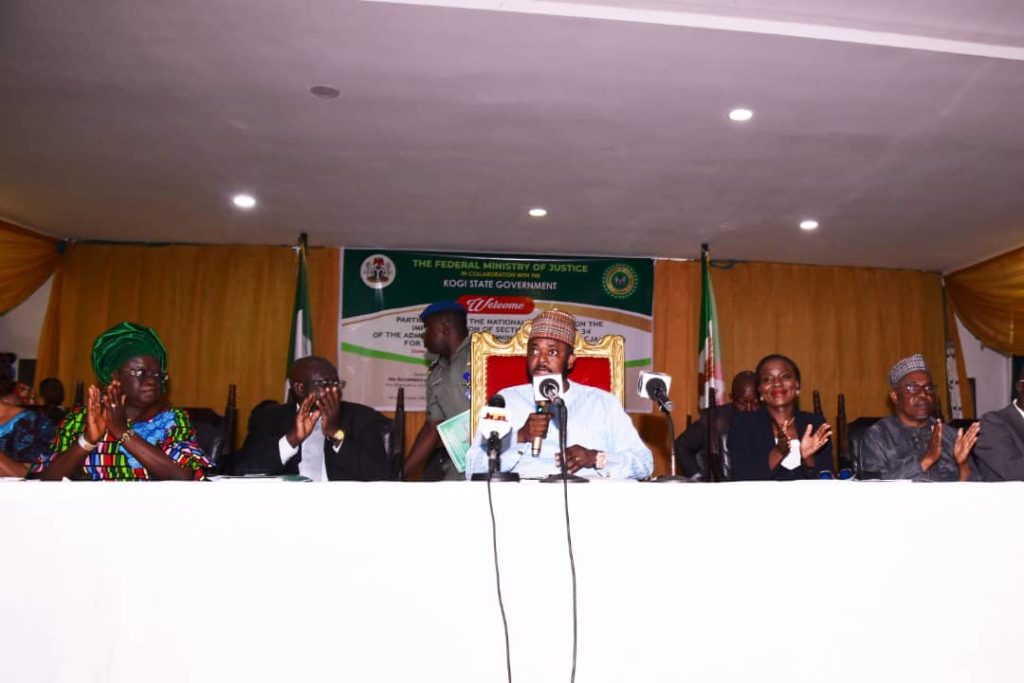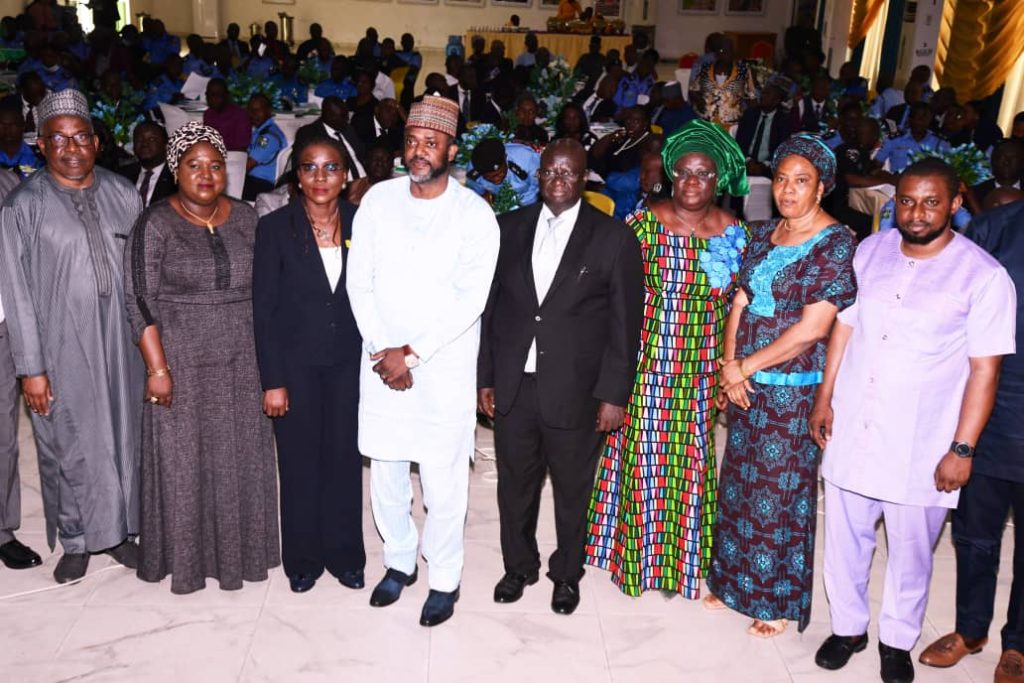
The Federal Government has again reiterated it’s commitment to reform the justice system and promote the rule of law in line with the National Policy on Justice. The Solicitor General of the Federation and Permanent Secretary, Federal Ministry of Justice, Mrs. Beatrice E. Jedy-Agba, mni gave the assurance in her welcome address at a 2- day National Workshop on the Implementation of Administration of Criminal Act, 2015 for North-Central Zone on Wednesday 27th July, 2022 in Lokoja, Kogi State. She said the reform was part of the activities of her ministry through the Federal Justice Sector Reform Coordinating Committee (FJSRCC).

According to Jedy-Agba, the move was aimed at reforming the criminal justice system and promote the rule of law in line with the National Policy on Justice. “In a federation and constitutional democracy such as ours, the need for the Federal, States and other stakeholders in the justice sector to collaborate to drive the reform of the justice system for national development cannot be overemphasized.”The National Policy on Justice is therefore the fulcrum of the collaboration towards addressing the various challenges militating against the justice system and defines it’s principles, values, integrity, security and accountability.
“Section 29(1) of the Act provides a mechanism for interface between the office of the Inspector General of Police and the Attorney General of the Federation, ditto States Attorney Generals and Commissioners of Police in States to remit quarterly to the AGF a record of all arrest made with or without warrants, in relations to federal offences within Nigeria.

“Section 33 of the Act requires an officer in charge of a police station, or an officer in charge of an agency authorized to make arrest to, on the last working day of every month report to the magistrate within the jurisdiction, the cases of all suspects arrested without warrant within the limits of their respective stations or agency; whether the suspect have been admitted to bail or not,”
Speaking further, the SGF noted that the implementation of the provisions is no doubt, aimed at addressing human rights abuses and maltreatment of suspects at Police stations and detention facilities in violation of the fundamental rights of suspects enshrined in the 1999 constitution as amended and other international human rights instruments. “You will agree that the violation of these rights by security agencies has gross negative effect on public perception and confidence in the security agencies and indeed, the Criminal Justice System,”Agba noted further.
For more effective Cross-section collaboration therefore, the SGF then charged stakeholders in States, Magisterial divisions, Jurisdictions, Commands and Stations to step down the knowledge gained to other colleagues across board. She expressed appreciation to the Executive Governor of Kogi State, Yahaya Bello for graciously accepting to host the workshop. She also thanked the Chief Judge of Kogi State, Rule of Law and Anti-Corruption Programme of the European Union, British Council as well as other stakeholders for their support in the collective efforts at reforming the justice system, distinguished invited guests and participants for being part of the workshop. Agba however assured that the Federal Ministry of Justice under the leadership of the HAGF to continue to lead the process of galvanizing the justice sector to play it’s role in national development.
In his remarks, the Kogi State Governor, Alhaji Yahaya Bello charged States yet to domesticate the Administrative of Criminal Justice Act (ACJA 2015) to do so in the public interest, noting that the piece of legislation was key to good governance. Bello, who doubled as Chairman and host of the 2-Day North Central Zonal Workshop on Section 29, 33 and 34 of the ACJA 2015, lauded the federal government for innovations brought into the country’s criminal justice system.

Represented by the Deputy Governor, Chief Edward Onoja, the governor stated further that Kogi State was quick to pass the ACJA Act into law in 2017 in order to protect human rights and enhance the criminal justice system. Bello said, “This enhanced protection for human rights and other benefits of a truly modern criminal justice system is one of the reasons we in Kogi State were quick to pass the ACJA law in 2017, making us perhaps the second State to do so in the entire north of Nigeria at that time.
“My advice is that any State yet to do so ought to immediately domesticate this vital piece of legislation in the public interest and as a key sign of good governance,” The governor thereafter described Sections 29, 33 and 34 as bedrock of due process and layers of safeguards capable of preventing citizens from falling through the cracks while in the grip of the country’s criminal justice system.
In a brief submission, the Co-Chair, Federal Justice Sector Reform Coordinating Committee (FJSRCC), Prof. Mohammed Tabiu, SAN observed that what the National Policy on Justice has done was to provide a framework where all stakeholders work collectively to restore public confidence in the country’s criminal justice system.
On its part, the Secretary FJSRCC, Mr. Felix Ota-Okojie told newsmen that as at the last count, over thirty States has domesticated the ACJA 2025, saying it is still work in progress.


